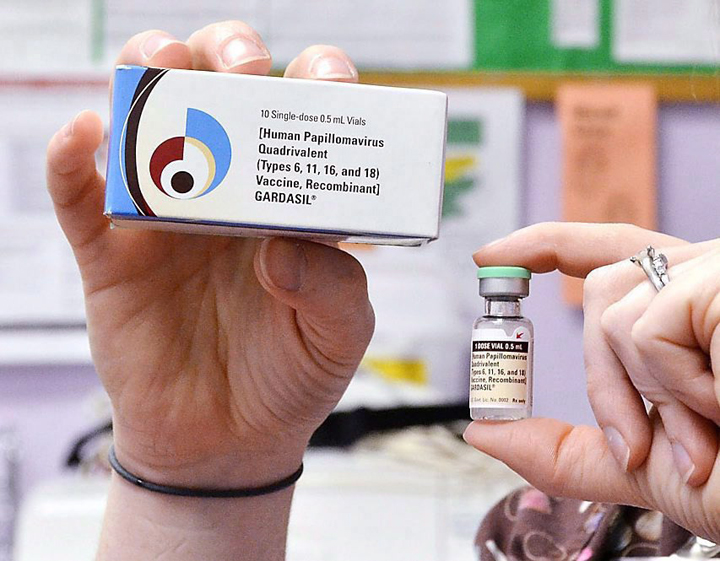Last week’s Toronto Star article about the Gardasil anti-human papillomavirus (HPV) vaccine has stirred up controversy and spawned angry responses from all over the Internet since its publication. On Wednesday the Star’s publisher John Cruickshank said the paper failed the public in the way it presented its story.

In an interview with CBC’s As It Happens Cruickshank took responsibility for the way the story was presented and said he understands why it could have given readers the false impression that Gardasil is dangerous. But he defended the reporting itself.
“The headline was wrong – A wonder drug’s dark side. And we say throughout the piece that we have no evidence that the anecdotes that were brought forward were caused by this drug,” Cruickshank told host Carol Off.
He says the “play of the piece,” which was a main story on that day’s front page, was also wrong.
“It’s especially troubling that the treatment was in that way during this period that there is an extraordinary debate over inoculations, frankly, between science and nonsense. And we have, at this newspaper, always been on the side of science,” Cruickshank said.
“We failed in this case. We let down. And it was in the management of the story at the top,” he said.
Earlier Wednesday, the Star’s public editor Kathy English said concerns being raised about the paper’s reporting are valid.
Update: Late Wednesday afternoon, the Toronto Star published an op-ed endorsed by 65 doctors which explains some of the scientific studies behind the vaccine.
The story stated that at least 60 girls and women in Canada have experienced severe medical conditions since receiving the vaccine, which is designed to prevent HPV – an infection which can lead to cervical cancer. The article went into detail on several cases, describing how one girl ended up requiring a wheelchair, and one had a heart attack.

Get weekly health news
And although the Star article states that, “Hundreds of thousands of teenage girls in Canada have received the vaccine’s three doses, the vast majority without incident,” and “Regulators, including Health Canada and the FDA in the United States, cite comprehensive clinical trials and other data that show the vaccine’s well-studied safety and efficacy,” critics say that not enough attention was paid to those clinical trials and that overall, the article gave an unbalanced view of the vaccine’s safety.
“Paragraph after paragraph is dedicated to detailing the terrible things that happened to these young girls and their families and in an Oprah-esque move the wealth of information detailing the vaccine’s safety was distilled to a few comments easy to ignore in among the trail of destruction allegedly due to the vaccine,” wrote Dr. Jen Gunter on her blog.
“In the cases discussed in this article, it is the opinion of a patient or doctor that a particular drug has caused a side-effect. There is no conclusive evidence showing the vaccine caused a death or illness,” said the Star article.
It’s not enough to just add in that line, wrote Julia Belluz on Vox.com. “The story was, at its core, a collection of unproven anecdotes that suggested, among other things, that dozens of women north of the border had been harmed or worse by the Gardasil HPV vaccine.”
“In medicine, anecdotes are considered the least helpful type of evidence. They are biased, unrepresentative, and, as often as not, misleading,” wrote Belluz. “What’s worse, while the Star cherry-picked damning cases about the vaccine’s alleged harms, they ignored the reams of independent studies we have involving millions of women around the world that show the vaccine is safe.”
Toronto Star Columnist Heather Mallick dismissed Dr. Gunter’s criticisms of the report, writing: “Here’s a tip: don’t read a website run by a rural doctor whose slogan is ‘wielding the lasso of truth.'”
Medical doctor and author Ben Goldacre took the Star to task on Twitter:
(You can read the whole exchange in this Storify by Karen Geier)
The Star’s editor-in-chief, Michael Cooke, has defended the report, sometimes vehemently. According to Belluz, “He dismissed the questions I raised, and pointed to a ‘very pro-Gardasil story’ I wrote for Vox recently. He then said that my ‘time might be better spent doing your own Vox-paid-for research into Gardasil-good-and-questionable rather than idly picking into other reporters’ work’ and that I should ‘stop gargling our bathwater and take the energy to run yourself your own, fresh tub.’”
Cruickshank said he’s writing something on the topic for the paper, as is its Public Editor Kathy English.
“I take responsibility. Michael Cooke takes responsibility. And we’ll focus on doing better in the future.”
*With files from Global News’ Andrew Russell



Comments